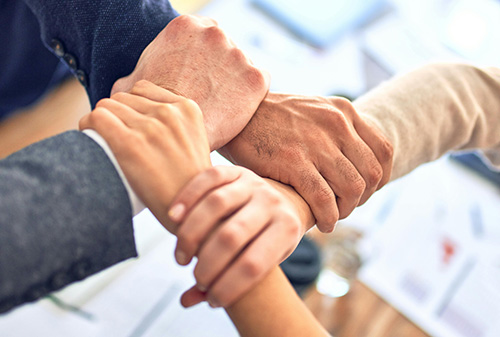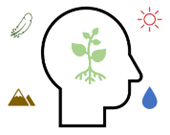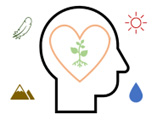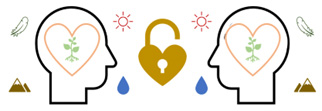The Secret of TetraMap: What makes
the difference?
Article By : Sandra Rösch, Certified TetraMap Facilitator, Germany.

The most frequently asked question in TetraMap workshops is the differentiation from the DISC model, which I would like to address below:
The DISG Model, also known as the DISC Personality Profiling System, is a framework used to categorize personalities into four main types: Dominance, Influence, Steadiness, and Conscientiousness. Each of these categories represents different behavioural and communication styles:
- Dominance: Individuals who fall into this category are assertive, decisive, and results-oriented. They tend to be focused on achieving goals and taking charge of situations.
- Influence: People with an influence style are outgoing, enthusiastic, and persuasive. They excel in building relationships, networking, and motivating others.
- Steadiness: Steadiness-oriented individuals are supportive, patient, and reliable. They value stability, harmony, and cooperation in their interactions with others.
- Conscientiousness: Those with a conscientious style are analytical, detail-oriented, and organized. They prioritize accuracy, planning, and adherence to rules and procedures.
The DISG Model helps individuals and organizations understand their own and others’ communication preferences, decision-making styles, and motivations, fostering effective collaboration, conflict resolution, and personal development.
 1. Short Description – TetraMap
1. Short Description – TetraMap
The TetraMap model is a behavior assessment tool that uses nature as metaphor to make it intuitive and easy to understand and describes different elements or natural preferences: EARTH, AIR, WATER, and FIRE. These elements represent different aspects of communication styles and behavior tendencies.
The TetraMap model emphasizes the interconnectedness of these four elements, recognizing that individuals possess a unique combination of preferences from each element. Understanding these preferences can enhance self-awareness, improve communication and teamwork, and facilitate personal and professional growth. The model encourages individuals and teams to appreciate and leverage the strengths of each element to achieve greater synergy and effectiveness. The Simplicity of TetraMap makes it easy to adapt it to different settings and processes e.g., Coaching, Leadership Training and Meditation.
 2. Mindset
2. Mindset
The DISC model categorizes people and provides recommendations for dealing with them.
In my opinion, the main difference between the two models is the change of mindset, based on the values which are the most important thing in the TetraMap model. When people face challenges that they are currently unable to overcome, TetraMap can help. This can involve conflicts, change processes, working with people or simply communication.
In recent years I have been using TetraMap in the coaching process and as part of mediations. Experience shows that we usually start with business problems / challenges and end up with people problems, which are usually the basis and cause that need to be overcome. Wouldn’t it be great if we could start and not end at exactly this point in the future? If we all save time and effort? What is the basis we need to achieve this?
 3. Trust
3. Trust
If everything we need basically comes down to people working well together, I don’t think the key to this lies in behaviour alone, nor in appreciating differences and building on strengths. Good co-operation should be based on trust. Is there any good thing in life that doesn’t start with trust and end with a lack of trust?
Building trust requires a leap of faith from all sides, a commitment to shared values that are visible in the way people interact with each other. These values become visible above all in communication, also in the way decisions are made; in the end, they serve as a common compass towards a common goal that can give everyone involved the freedom they need to successfully contribute to the big picture.
To come to the end and answer the question of what makes TetraMap so special from my point of view: It creates trust between people, that is the basis for a successful future, for all those who get involved in what nature has known and exemplified for longer than humans have existed on this planet.
Thanks Yoshimi and Jon, for developing TetraMap, a GameChanger for all interpersonal topics😊

Sandra Rösch is a TetraMap facilitator and coach with 10 years of experience in people and leadership development and recruiting with a focus on active sourcing.
*DiSG in Germany or DiSC in English are registered trademarks. You can find more https://www.discprofile.com/what-is-disc
At TetraMap we believe that many tools which help develop self awareness are valuable and can often build on each other.